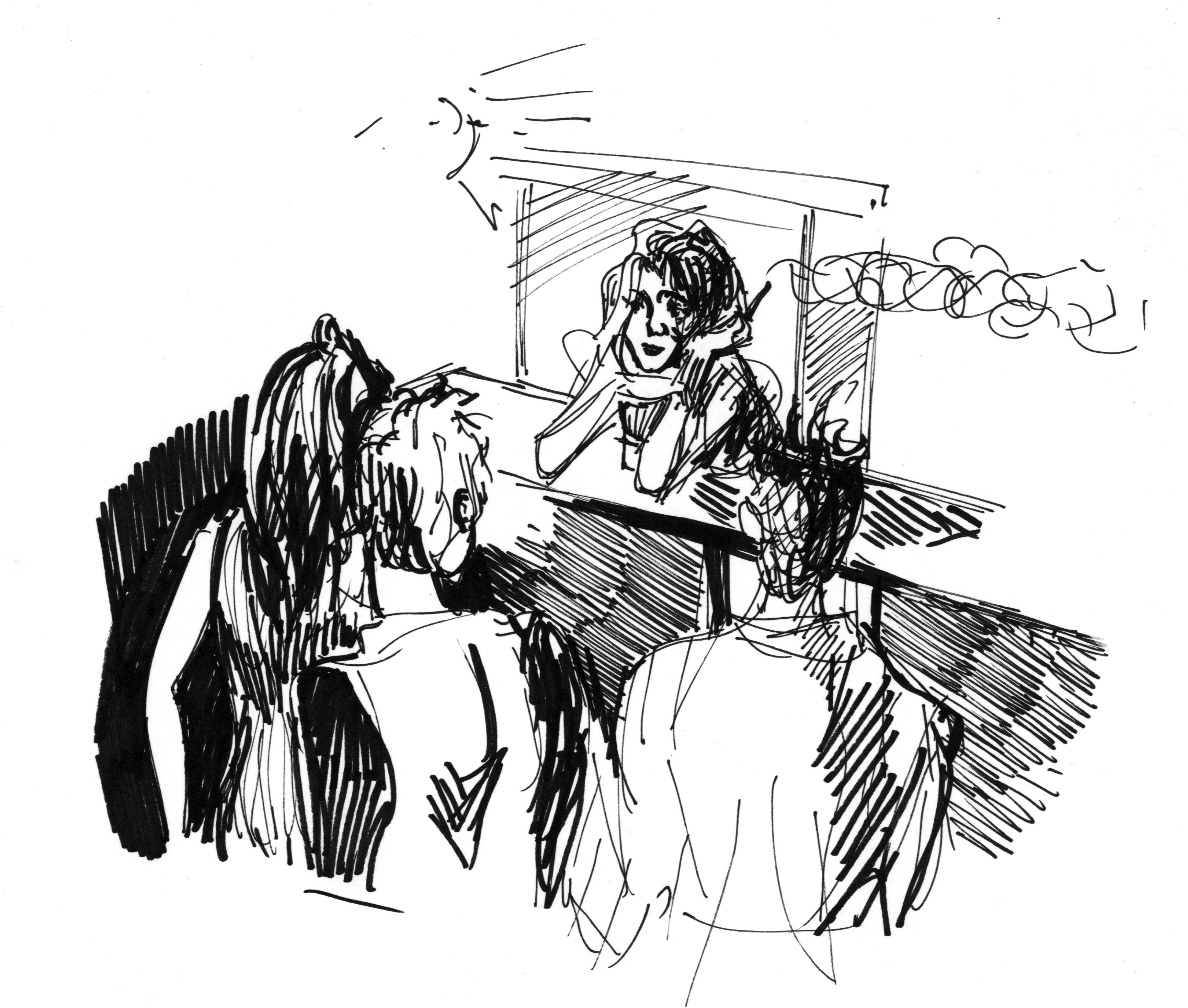
The last stop on our pub crawl was a place called Players, a seedy little joint in the red-light district where the organizers poured vodka straight into our mouths as we filed through the door. The deal was that we’d get a free shot at each new place and could buy more drinks at a discount if we wanted to.
And we did want to! We had arrived in the city that evening, two of us by plane and two by train, our minds bepopulate with every teenage fiction of life on the road. Our budget flight from London was delayed three hours but we had made it after all and were the most alive we’d ever been.
The bar was large and had long wooden tables perpendicular to every wall. It was crowded enough but easy to navigate. We made our way to the back, where there were ripped vinyl booths and a jukebox from the ’80s. My friend pulled out a cigarette.
“You can’t smoke in here,” said a bartender with tattoos on his arms. His accent did not sound Dutch.
We sat, nursing bottles of Heineken. A Ukrainian named Anton was telling us about a girlfriend back home. We thought he was funny enough so we let him talk as we drank, offering timely nods so he wouldn’t leave us alone with our silence. Once you arrive at a destination you never know what to say, so the thing is never to arrive. That’s what Anton said. He was mildly sunburnt and had the blondest hair I’d ever seen.
Some French girls walked by and one of us tried out our accent on them. They told us we looked young. We told them they were the prettiest girls in Europe — a lie, of course, but an earnest one. They stood amused for a moment then continued on to the bar, where they ordered gin and tonics.
After a while the place began to empty out. We waited until the music had stopped and the staff turned on the lights before we paid our bill and left. Then we were back on the street with nowhere to go but a lot left to do. The red lights shone onto the cobblestones like in some Hadean trance.
A short distance away a woman beckoned to us from a storefront. She was tall and wore heels and had a bow in her hair. I imagined she was looking into my eyes but I could hardly see hers through the darkness. She was the fourth or fifth woman I’d fallen in love with that night. Three of those were prostitutes.
Through the window next to her I could see a bed, a sink, a lamp. It all looked very clinical, clinical in the good sense. I felt like I could trust her. Like anyone else in a healing profession she would recognize my need and act accordingly to fulfill it. No other industry could provide the transactional competence I had observed that night through the comings and goings of various men, the red lights turning off and on again in 15-minute intervals. People often pity prostitutes but I remember no such sadness in her eyes; it must have been she who saw it in me.
Across the street some American girls passed around a joint. We kept moving. There was water all around us. We walked by two shawarma stands, a Burger King and were followed for some time by a Moroccan who offered us four different prices for coke before abandoning the sale. I almost bought some out of shame; if he had asked again I certainly would have. I thought he would have made a decent peddler of just about any other good. I admired his willingness to intrude, the ease with which he lied about the quality of his wares.
The bars were beginning to close. We stumbled into a coffee shop where bearded men were playing poker and smoking cigarettes. They said their names and I knew they didn’t want to harm us. We sat and watched them play, but no one ever seemed to win.
“Why don’t you speak?” said a wrinkled Romanian named Andrei. His English was good.
“I wouldn’t know what to say.”
“Tell me what you think of me.” He rested his forearm on my shoulder. “Tell me what I am.”
I told him he looked lost and he seemed to agree. For a while no one spoke. Then we said goodbye and from the street I saw the sun poking over the narrow townhomes, the canal’s surface shining like millions of coalescent mirrors.
Maybe our bus had passed or maybe it was yet to come. I don’t know. What’s important to remember now is when I stepped into the morning air the world was positively still. Doors rested in their jambs. Dust lay waiting to be swept up by future winds. And I felt fine. I understood how things could be at one with their becoming. I accepted the price of my involvement. The nascent dawn was large and full of light.







